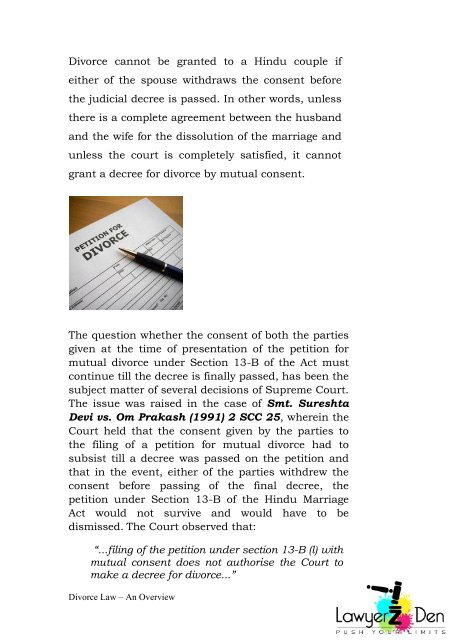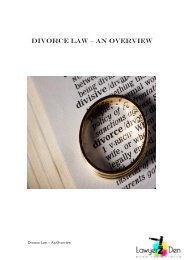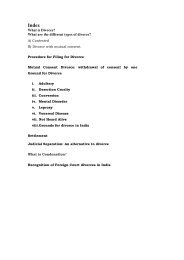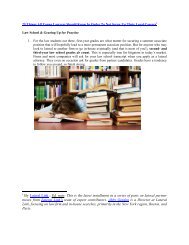DIVORCE LAW
Create successful ePaper yourself
Turn your PDF publications into a flip-book with our unique Google optimized e-Paper software.
Divorce cannot be granted to a Hindu couple if<br />
either of the spouse withdraws the consent before<br />
the judicial decree is passed. In other words, unless<br />
there is a complete agreement between the husband<br />
and the wife for the dissolution of the marriage and<br />
unless the court is completely satisfied, it cannot<br />
grant a decree for divorce by mutual consent.<br />
The question whether the consent of both the parties<br />
given at the time of presentation of the petition for<br />
mutual divorce under Section 13-B of the Act must<br />
continue till the decree is finally passed, has been the<br />
subject matter of several decisions of Supreme Court.<br />
The issue was raised in the case of Smt. Sureshta<br />
Devi vs. Om Prakash (1991) 2 SCC 25, wherein the<br />
Court held that the consent given by the parties to<br />
the filing of a petition for mutual divorce had to<br />
subsist till a decree was passed on the petition and<br />
that in the event, either of the parties withdrew the<br />
consent before passing of the final decree, the<br />
petition under Section 13-B of the Hindu Marriage<br />
Act would not survive and would have to be<br />
dismissed. The Court observed that:<br />
“...filing of the petition under section 13-B (l) with<br />
mutual consent does not authorise the Court to<br />
make a decree for divorce...”<br />
Divorce Law – An Overview









